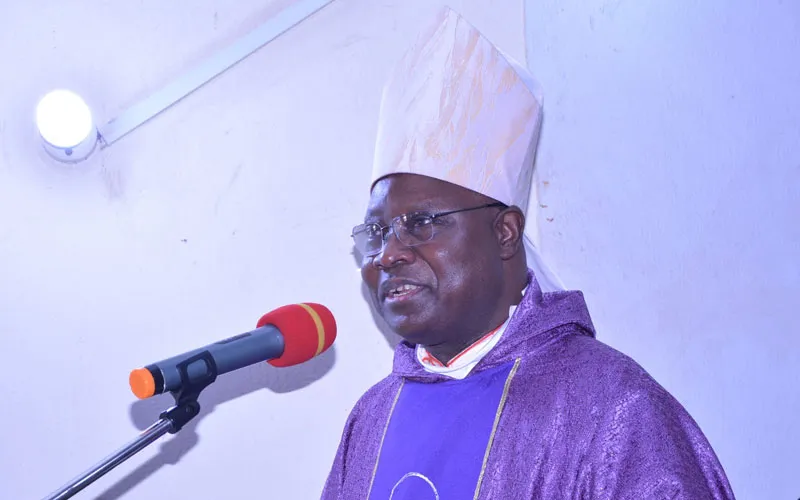Archbishop Kaigama went on to bemoan his country’s “poor social security system,” which he observed “negatively affects millions of Nigerian security personnel, youths, retirees, disabled persons, and families of retired or deceased workers living and contributes to the rising crime rate, leaving the authorities in a quandary.”
The current social security system has turned youths “into beggars and some embrace crime or violence or other criminal activities,” the Nigerian Archbishop said, and added, “Pensioners sometimes regret their faithful service to their fatherland as they languish in poverty, especially during tough times like these.”
Amid the challenges the people of God in Nigeria face, “Humanitarian activities of Church-based organizations such as the Catholic Relief Services (USA), Catholic Agency for Overseas Development (Britain), MISSIO and MISEREOR, Aid to the Church in Need (ACN) in Germany, have supported many poor people in Nigeria,” Archbishop Kaigama said.
Making reference to the faith-based entities he enumerated, the Archbishop added, “Their income comes largely from Catholics who take up collections yearly; some of the organizations are supported by their Governments to reach out to us without religious or ethnic discrimination.”
“Despite all the Catholic Church has done and continues to do through social services, schools and hospitals, Government collaborative support of the Catholic Church needs radical improvement,” the Archbishop of Abuja said in his February 28 homily.
He invited the people of God under his pastoral care to contribute to the Lenten Campaign, referencing Maryse Quashie, a “Catholic human rights activist and former university lecturer in Togo” who “believes the African Churches have matured to the level of being more self-sufficient ‘to stop looking for handouts from the West.’”
The human rights activist was responding to the letter of the Prefect of the Congregation for the Evangelization of Peoples, Luis Antonio Cardinal Tagle “urging dioceses in almost all of Africa, Asia and Oceania and some parts of Latin America to consider renouncing the subsidies from the Pontifical Mission Societies (PMS) because donations have dropped considerably since the coronavirus pandemic,” Archbishop Kaigama clarified.
In her response published in the 10 February 2021 edition of La Croix, Mary Quashie “insists that it is time to stop being assisted Churches, but to grow up and become adult Churches; to begin to see that we, too, are rich and have something to share,” the Nigerian Archbishop said.
The dwindling subsidies from PMS are “an opportunity for our Church to look for ways to be more self-sufficient,” Archbishop Kaigama further said.
“St. James insists that faith without good work is dead and says if you see a person hungry, do not ignore him/her for according to Christ, whatever good you do to the poor, you do it to Him,” the Archbishop said making reference to the letter of St. James and the Gospel according to Matthew.








